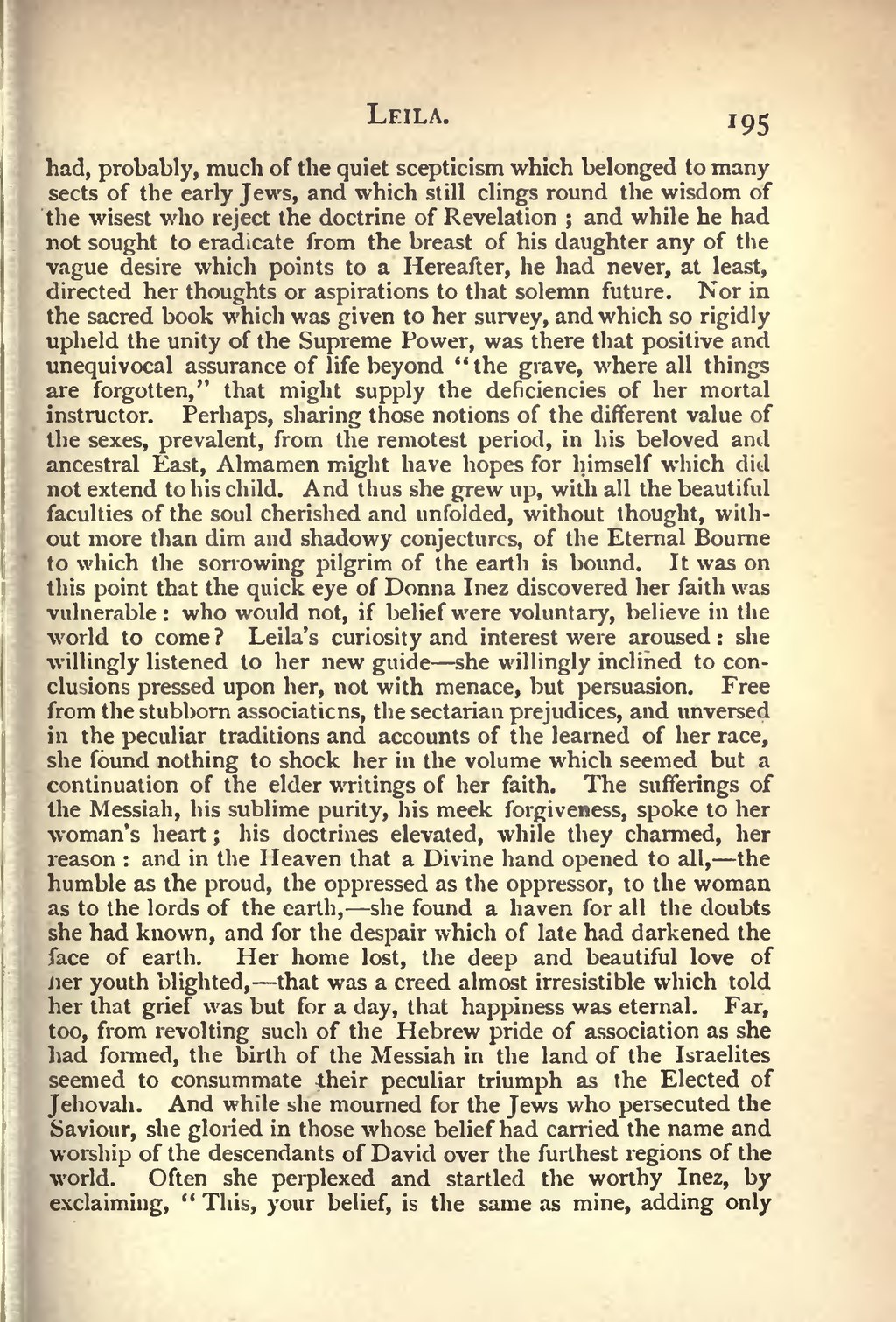had, probably, much of the quiet scepticism which belonged to many sects of the early Jews, and which still clings round the wisdom of 'the wisest who reject the doctrine of Revelation; and while he had not sought to eradicate from the breast of his daughter any of the vague desire which points to a Hereafter, he had never, at least, directed her thoughts or aspirations to that solemn future. Nor in the sacred book which was given to her survey, and which so rigidly upheld the unity of the Supreme Power, was there that positive and unequivocal assurance of life beyond "the grave, where all things are forgotten," that might supply the deficiencies of her mortal instructor. Perhaps, sharing those notions of the different value of the sexes, prevalent, from the remotest period, in his beloved and ancestral East, Almamen might have hopes for himself which did not extend to his child. And thus she grew up, with all the beautiful faculties of the soul cherished and unfolded, without thought, without more than dim and shadowy conjectures, of the Eternal Bourne to which the sorrowing pilgrim of the earth is bound. It was on this point that the quick eye of Donna Inez discovered her faith was vulnerable: who would not, if belief were voluntary, believe in the world to come? Leila's curiosity and interest were aroused: she willingly listened to her new guide—she willingly inclined to conclusions pressed upon her, not with menace, but persuasion. Free from the stubborn associations, the sectarian prejudices, and unversed in the peculiar traditions and accounts of the learned of her race, she found nothing to shock her in the volume which seemed but a continuation of the elder writings of her faith. The sufferings of the Messiah, his sublime purity, his meek forgiveness, spoke to her woman's heart; his doctrines elevated, while they charmed, her reason: and in the Heaven that a Divine hand opened to all,—the humble as the proud, the oppressed as the oppressor, to the woman as to the lords of the earth,—she found a haven for all the doubts she had known, and for the despair which of late had darkened the face of earth. Her home lost, the deep and beautiful love of her youth blighted,—that was a creed almost irresistible which told her that grief was but for a day, that happiness was eternal. Far, too, from revolting such of the Hebrew pride of association as she had formed, the birth of the Messiah in the land of the Israelites seemed to consummate their peculiar triumph as the Elected of Jehovah. And while she mourned for the Jews who persecuted the Saviour, she gloried in those whose belief had carried the name and worship of the descendants of David over the furthest regions of the world. Often she perplexed and startled the worthy Inez, by exclaiming, "This, your belief, is the same as mine, adding only
